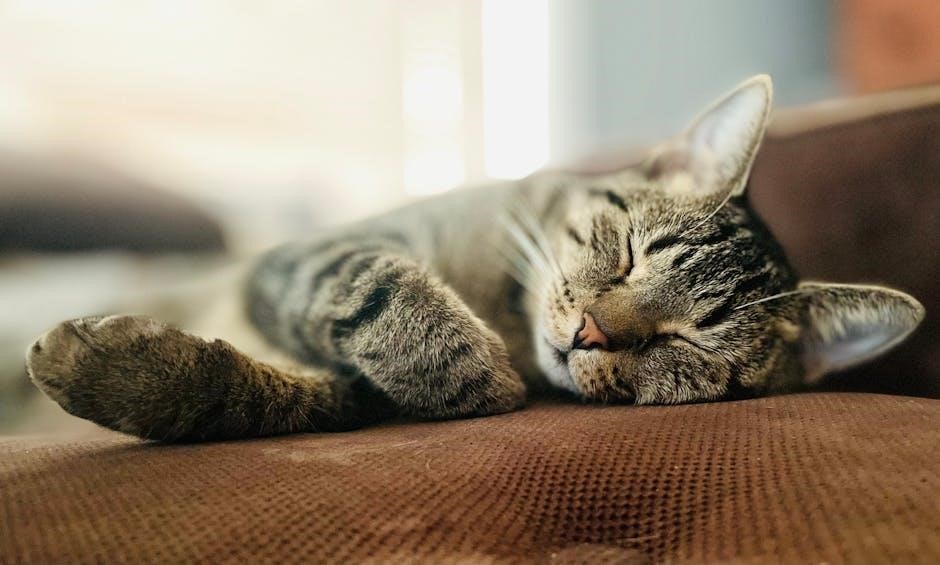
list of legal pets in illinois pdf
Illinois allows a diverse range of pets, from common household animals to select exotic species, governed by specific laws ensuring public safety and animal welfare.
1.1 Overview of Pet Laws and Regulations in Illinois
Illinois pet laws regulate the ownership of various animals, ensuring public safety and animal welfare. Common household pets, such as dogs, cats, and birds, are permitted without special licenses. Exotic pets, like ferrets and hedgehogs, are allowed under specific conditions. Licensing requirements vary, with certain exotic animals needing permits. Local ordinances may restrict pet ownership based on zoning laws. Invasive species are prohibited to protect ecosystems. These regulations aim to balance pet ownership rights with community and environmental protection, ensuring responsible animal care and legal compliance.

1.2 Importance of Knowing Legal Pets in Illinois
Understanding Illinois pet laws is crucial for responsible ownership and legal compliance. Knowing which pets are permitted ensures adherence to state and local regulations, avoiding potential fines or legal issues. Legal constraints protect public health, safety, and environmental balance, particularly concerning exotic and invasive species. Familiarity with these laws helps owners provide appropriate care and housing for their pets. It also prevents the unintended release of harmful species into the wild, safeguarding local ecosystems. Awareness of legal requirements fosters a harmonious relationship between pet owners, their communities, and the environment, promoting ethical and responsible pet ownership across the state.
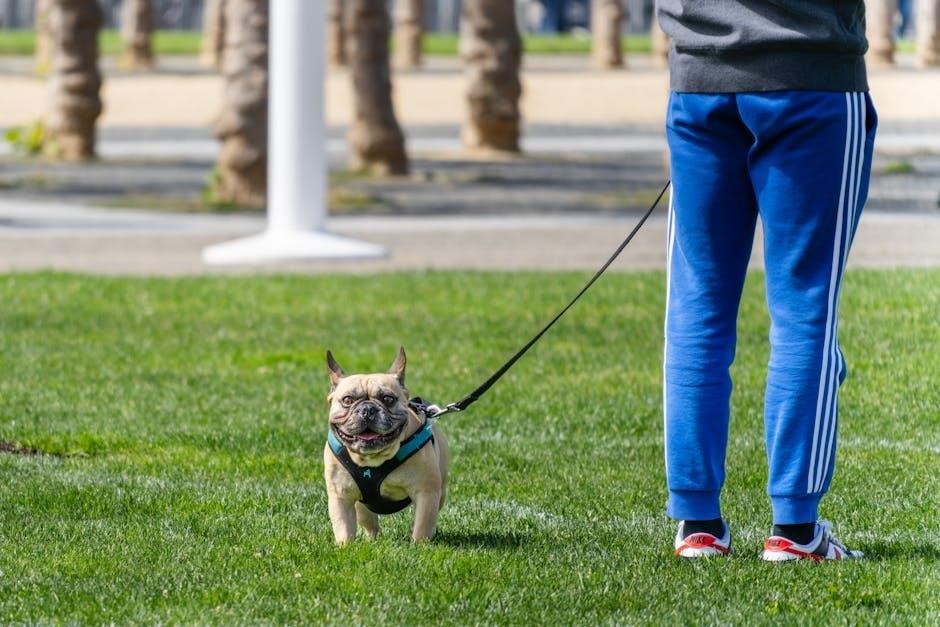
Categories of Legal Pets in Illinois
Illinois permits common household pets like dogs, cats, birds, and fish, as well as select exotic animals such as ferrets, hedgehogs, turtles, and certain birds. Farm animals and livestock are also allowed under specific regulations, ensuring legal compliance and environmental protection.
2.1 Common Household Pets (Dogs, Cats, Birds, Fish)
Dogs, cats, birds, and fish are widely accepted as legal household pets in Illinois, requiring no special permits; These animals are popular for their low-maintenance care and companionship. Many species of birds, such as parrots and pigeons, are allowed, while fish like goldfish and aquarium species are also permitted. These pets are considered legal under Illinois state law and are often exempt from licensing requirements beyond standard vaccinations. Their legal status is straightforward, making them accessible for most residents. However, local ordinances may vary, so it’s important to check specific rules in your area, especially for exotic bird species or large aquarium setups.
2.2 Exotic Pets Allowed in Illinois
Illinois permits ownership of certain exotic pets, such as non-venomous snakes, turtles, ferrets, and specific fish species, without requiring special permits. These animals are considered low-risk and are legally allowed for domestic ownership. Additionally, domesticated rodents like hamsters and gerbils, as well as rabbits, are classified as exotic but are widely permitted. The state’s laws aim to balance public safety with the freedom to own unique pets. However, some exotic species may require specific licenses or fall under restricted categories, so it’s essential to consult local ordinances and the Illinois Legal Pet Guide for detailed information before considering exotic pets.
2.3 Farm Animals and Livestock
Farm animals and livestock, such as cows, pigs, chickens, and horses, are commonly permitted in Illinois, particularly in rural areas. These animals are regulated under agricultural laws and zoning ordinances, which vary by location. For example, urban areas may have stricter rules about keeping livestock, while rural regions are more permissive. Owners must comply with health and safety standards, including proper housing and waste management. Additionally, certain farm animals may require permits or licenses, especially if they are raised for commercial purposes. Illinois’ legal framework ensures that farm animals are treated as agricultural resources while balancing environmental and community considerations.
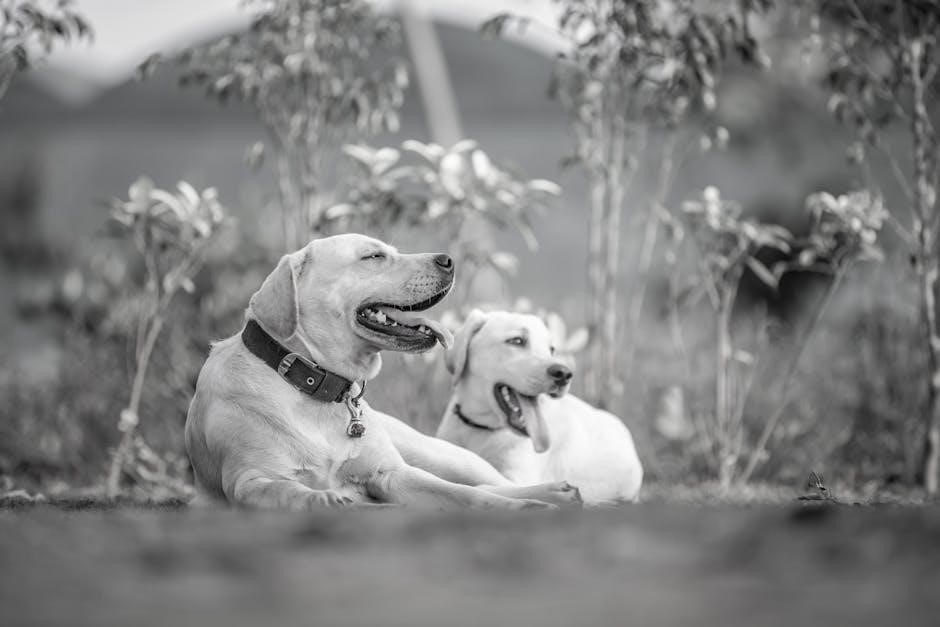
Exotic Pets and Their Legal Status
In Illinois, exotic pets like ferrets, hedgehogs, and certain reptiles are legal with proper permits. However, animals such as bears, monkeys, and venomous snakes are strictly prohibited.
3.1 Mammals (Ferrets, Hedgehogs, etc.)
In Illinois, certain exotic mammals like ferrets and hedgehogs are legal to own as pets. Ferrets are permitted but may require specific permits, while hedgehogs are generally allowed without restrictions. Other small mammals, such as sugar gliders and chinchillas, are also legal, provided they are obtained from licensed breeders. However, exotic mammals like monkeys, bears, and wolves are strictly prohibited due to safety concerns. The state’s laws aim to balance pet ownership rights with public safety and animal welfare. Owners must ensure compliance with local ordinances and obtain necessary permits for exotic mammal pets.
3.2 Reptiles and Amphibians (Turtles, Frogs, etc.)
Illinois permits the ownership of many reptiles and amphibians as pets, including turtles, frogs, and non-venomous snakes. Popular choices like corn snakes, box turtles, and American green tree frogs are legal. However, certain exotic or invasive species, such as venomous snakes and large reptiles, are restricted or banned. Native species may require permits to ensure their sustainable collection. Owners must adhere to state and local regulations to protect both public safety and ecosystems. Proper licensing and care are essential for legally keeping reptiles and amphibians as pets in Illinois.
3.3 Birds (Parrots, Pigeons, etc.)
Birds, such as parrots, pigeons, and domesticated species, are widely permitted as pets in Illinois. Non-invasive and non-exotic birds are generally legal without special permits. However, certain exotic bird species may require licensing under state regulations. Native bird species, such as songbirds, are protected and cannot be kept as pets without specific permits. Pigeons are commonly allowed, but their breeding may be subject to local ordinances. Owners must ensure they comply with both state and federal laws to avoid legal issues. Illinois promotes responsible ownership of birds to maintain ecological balance and public safety.
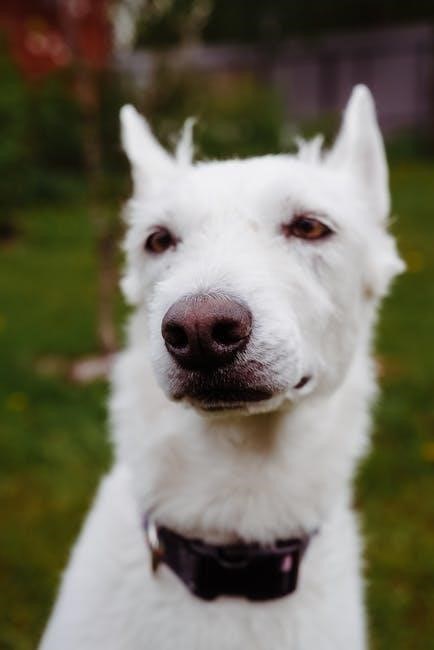
Prohibited and Restricted Pets in Illinois
Illinois prohibits ownership of certain exotic and dangerous animals, such as bears, wolves, and venomous snakes, to protect public safety and native ecosystems from harm.
4.1 Exotic Animals Banned for Ownership
In Illinois, certain exotic animals are prohibited for private ownership to protect public safety and ecosystems. These include bears, wolves, venomous snakes, and non-native big cats like lions and tigers. Additionally, primates, such as monkeys and apes, are banned due to potential health risks and aggressive behavior. Some reptiles, like alligators and crocodiles, are also restricted. Exceptions exist for licensed facilities, such as zoos, which must meet strict regulatory standards. Permits may be granted for specific purposes, such as education or research, but private possession of these animals is largely prohibited. This ensures the state balances wildlife conservation with human safety concerns effectively;
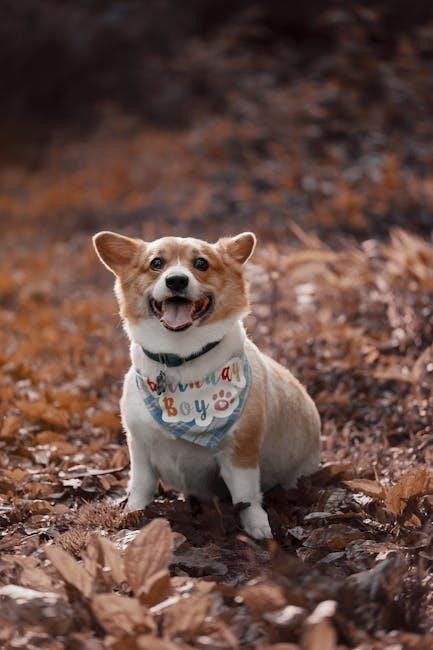
4.2 Invasive Species and Their Legal Implications
In Illinois, invasive species pose significant ecological and economic threats. Animals like bighead carp, black carp, Eurasian ruffe, rudd, round goby, rusty crayfish, silver carp, and zebra mussels are prohibited. These species can disrupt native ecosystems and harm biodiversity. Ownership or release of invasive species without proper permits is illegal, carrying fines and penalties. The Illinois Department of Natural Resources enforces strict regulations to prevent their spread. Violations can result in legal action, emphasizing the importance of responsible pet ownership and environmental protection; Public awareness campaigns highlight the risks of invasive species to encourage compliance with state laws and preserve Illinois’ natural resources effectively.
Legal Framework and Licensing Requirements
In Illinois, pet ownership is regulated by state laws and local ordinances. Licensing requirements vary by jurisdiction, ensuring compliance with health and safety standards for both owners and animals.
5.1 State Laws and Regulations
Illinois state laws govern the ownership of pets through specific regulations aimed at ensuring public safety and animal welfare. The Illinois Department of Agriculture oversees licensing requirements for pet breeders and exotic pet owners. Exotic animals, such as certain reptiles and mammals, require special permits. Prohibited species, including big cats and bears, are restricted due to safety concerns. The state also regulates invasive species to protect local ecosystems. These laws are enforced to maintain balance between pet ownership rights and community well-being, ensuring responsible practices among pet owners and breeders. Compliance with state regulations is mandatory to avoid legal consequences.
5.2 Local Ordinances and Zoning Laws
Local ordinances and zoning laws in Illinois further regulate pet ownership, varying by city or county. These rules often restrict the number or types of pets allowed in residential areas. For example, some municipalities may prohibit certain exotic pets or require special permits. Zoning laws may also limit the keeping of farm animals in urban zones. Additionally, local ordinances may address noise, waste, and public safety concerns. For instance, Chicago has specific regulations regarding exotic pets, while smaller towns may have fewer restrictions. It is essential to check local laws, as they can be more restrictive than state regulations, ensuring compliance for pet owners. Proper permits and adherence to these ordinances are crucial to avoid legal issues.
Understanding Illinois pet laws ensures responsible ownership and compliance with regulations, promoting harmony between humans and animals while respecting legal and ethical standards in the state.
6.1 Summary of Legal Pets in Illinois
Illinois permits a wide variety of pets, including common household animals like dogs, cats, birds, and fish, as well as select exotic species such as ferrets, hedgehogs, and turtles. Certain exotic animals, like non-venomous snakes and domesticated rodents, are legal with proper permits. However, invasive species, such as bighead carp and Eurasian ruffe, are strictly prohibited to protect the environment. The state requires licensing for pet breeders and enforces regulations to ensure animal welfare and public safety. Responsible ownership is crucial to comply with Illinois laws and prevent ecological harm. This balanced approach allows residents to enjoy diverse pets while maintaining legal and ethical standards.
6.2 Importance of Responsible Pet Ownership
Responsible pet ownership is crucial to ensure the well-being of both animals and communities in Illinois. By adhering to state laws and local regulations, owners help prevent the introduction of invasive species and protect public health. Proper licensing, vaccinations, and care are essential to maintain animal welfare and safety. Irresponsible ownership can lead to legal consequences and ecological harm, such as the spread of non-native species. Owners must also be aware of prohibited pets and exotic animal restrictions to avoid contributing to environmental issues. Responsible pet ownership fosters a harmonious relationship between humans, animals, and the environment, promoting a safer and more sustainable future for all.